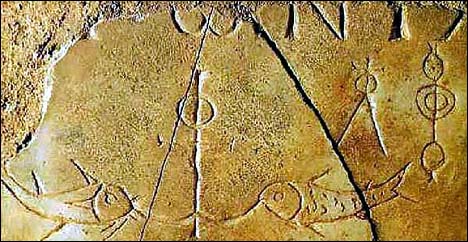by larryhurtado
In the continuing scholarly discussion about the origins and nature of earliest “Jesus-devotion” (my term for the reverence given to the risen/exalted Jesus in early Christian beliefs, proclamation, and worship), a question repeatedly emerges, especially from the general public: Did Jesus demand that he be so reverenced?
In fact, not long after my book, Lord Jesus Christ: Devotion to Jesus in Earliest Christianity appeared (Eerdmans, 2003), I was invited by the editor of Journal for the Study of the Historical Jesus to address basically the question of what kind of reverence was likely offered to the “earthly” Jesus. My article on the question appeared in the journal in 2003 (pp. 131-46): “Homage to the Historical Jesus and Early Christian Devotion,” and was re-published as a chapter in my book, How on Earth did Jesus Become a God? (Eerdmans, 2005, pp. 134-51).
Essentially, I contend that a critical sifting of the evidence (in the NT Gospels) yields the conclusion that Jesus was treated with the sort of reverence that connoted respect for a teacher or prophet or holy man, especially by those who approached him for healing or exorcism, or for respectful dialogue over religious matters. But there is no indication that Jesus was given the sorts or level of devotion that so quickly erupted among early circles of Jesus-believers soon after his crucifixion. Nor is there evidence that Jesus demanded recognition as “divine” or demanded that he be given worship. We should not expect this of a devout Jew of his time, and the evidence conforms to this expectation.
So, one might ask, if Jesus never demanded such reverence, what is the justification for it? Why did early Jesus-believers practice such devotion to Jesus? The answer seems to be that they held the conviction that God had exalted Jesus to an exceptional place of heavenly glory (e.g., Acts 2:36; 1 Peter 1:21), had enthroned Jesus as universal ruler (e.g., 1 Cor. 15:20-28), had declared him to be “the son of God” (e.g., Rom 1:3-4), had given Jesus to share in the divine “name” (e.g., Philippians 2:9-11), and now required that Jesus be reverenced in an unprecedented manner (e.g., John 5:23). Indeed, these early believers appear to have felt that to refuse to given Jesus the devotion reflected in the early Christian sources would be to disobey God.
In short, the reason for treating Jesus as so central in their devotional practice was fundamentally theo-centric: God required it.
From sometime in the 18th century onward, the idea arose that only what Jesus himself taught was valid, and so the mania over the “historical” Jesus arose, with the ensuing cafeteria of results and approaches. But, whatever, you think of that idea, it’s irrelevant for the historical task of understanding the origins of earliest Jesus-devotion. In the earliest sources, a conviction about what God required and had authorized was the basis for Jesus-devotion. Note that even in a text such as the scene in Matthew 28:16-20, which ascribes to Jesus a universal authority, it is the risen Jesus who speaks, and he refers to this universal authority as given to him (by God, v. 18).
There is, of course, much more that could be said about the amazingly rapid and full flowering of Christological claims and beliefs that we see already in the NT writings, and that continued to develop across subsequent early centuries. But this development, particularly in the initial period, was driven very much by the powerful conviction that it was the will of God, the one God of biblical tradition, “the God and Father of our Lord Jesus Christ” (e.g., Romans 15:6).













